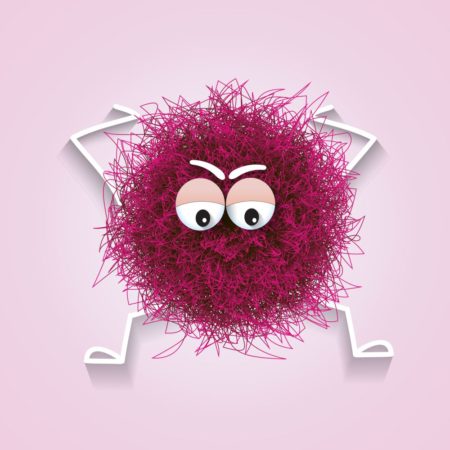COVID-19 (Coronavirus) has walked into our lives with giant footprints. In fact, Florida Lung, Asthma and Sleep Specialists (FLASS) has spotted an elephant in the room. We cannot really talk about sports, politics, or life events in our communities without an elephant entering the room.
That elephant is a virus, not a pachyderm. And the disease it causes goes by the official name of COVID-19. Of course, it occupies many conversations and virtually monopolizes the airwaves and the Internet. Read on to discover how we will “eat” that rogue elephant or rather, change the course of the disease.
Recognizing a Rogue Elephant By Its Numbers

COVID-19: An Unwelcome Guest
By now, everyone in your life has told you to wash your hands, avoid touching your face and stay home if you are sick with flu symptoms. Your doctors and healthcare providers at Florida Lung, Asthma and Sleep Specialists would feel remiss if we did not update information.
As we publish this article, the numbers are sadly significant. There have been 126,136 cases of COVID-19 worldwide, with 4,630 deaths. FLASS suggests that if you note these statistics also note that most people have recovered from the virus. Perhaps if we look at it that way, we can turn panic into preparation.
Most Importantly: Preparation, not Panic in the Time of the C0VID-19 Pandemic!
We know you are probably keeping up with the current coronavirus news. This elephant is hard to avoid. However, we want to remind you that the CDC has a constantly updating online resource to help you at this time.
Thus we have FLASS-approved advice, summarized from the CDC. These suggestions are provided “Just in Case.” Home Delivery, Anyone?
- You might need to have some extra supplies on hand if the unthinkable should occur.
- Personal Space: Keep a distance between yourself and others.
- When you go out in public, remember to avoid others who are sick.
- Please limit close contact. Instead of a hand-shake… (Will you choose the toe touch, elbow bump or the Vulcan hand sign greeting?)
- FLASS doctors and staff remind to that washing your hands often is vital to your well-being, not only to avoid COVID-19 but also to evade the Flu. (Yes, flu is the other elephant in the room.)
Avoid COVID-19 Hot Spots

Avoiding Large Groups is Also a Way to Avoid Coronavirus, Flu and Other Unwanted Illnesses.
Current Events: As we see more and more authorities canceling public events, we remind you to avoid crowds. In the midst of a pandemic, it is simply not a good time for a vacation, spring-break or otherwise.
And last but not least, “During a COVID-19 outbreak in your community, stay home as much as possible to further reduce your risk of being exposed.”
Notes to the High-Risk Groups: Coronavirus and Senior Citizens
It is vital that we realize the most vulnerable groups of people at this time are our senior citizens. According to the CDC, “We know that this virus most threatens people over 60, especially those with underlying health issues.
This includes older adults and people who have serious chronic medical conditions like heart disease, high blood pressure, diabetes, and of course, lung or respiratory disease. “If you are at higher risk for serious illness from COVID-19 because of your age or because you have a serious long-term health problem, it is extra important for you to take actions to reduce your risk of getting sick with the disease.”
Jay Butler, Deputy Director for Infectious Diseases at CDC, describes preventative measures to help protect older adults from COVID-19.
COVID-19: First Steps in Fighting the Virus

Fear Accomplishes Only One Thing: It Can Make Your Hair Stand On End. Prepare – Don’t Panic!
If you are in this high-risk group, you might want to check with your healthcare provider to ask about obtaining an extra supply of your necessary medications. This will be a wise precaution if there is an outbreak of COVID-19 in your community. You see, you might need to stay home for a while. Likewise, talk to your doctor about monitoring your health closely if you are in the high-risk group.
- Did you know that many people will recover at home from COVID-19? That’s why it might be very wise to have over-the-counter medicines to treat fever and other symptoms.
- So, why not have enough household items and food in your home? That is preparation, not panic.
Authorities at Johns Hopkins give a strong voice to calmness. In fact, while we confront COVID-19, “The possibility of having a contagious illness is scary, but doctors, nurses and other caregivers are learning more about COVID-19 every day. They are working together with national and international agencies to identify and provide care to patients while avoiding the spread of the illness in the community.”
Symptoms, Signs, Feelings and Emergency Symptoms
During this pandemic, FLASS doctors and staff recommend that you pay close attention to symptoms in both yourself and your loved ones.
- It is not a panicky reaction to monitor yourself if you develop fever, cough, and shortness of breath.Of course, call your doctor.
2. If you are elderly and you have a caregiver, be sure you make a plan about what you will do if he or she becomes ill and cannot take care of you. It’s smart to have a backup plan.
3. Plus, if that shortness of breath or difficulty breathing that persists or if you are feeling persistent pain or pressure in the chest you might have progressed to emergency symptoms.
4.Hopefully, caregivers, friends or family are near enough to notice if you register a type of new confusion. That could be an emergency symptom.Likewise, if they note an inability to rouse you from sleep or you feel like you just cannot wake up, that is an emergency symptom.
5. And, of course, if your lips or face turns blue, that is a definite and immediate sign of an emergency.
Reach Out To Friends and Family
The Florida Lung, Asthma and Sleep Specialists urge you at this time to make connections with your friends and family by phone and email. Remember, you might need help, or you might be in a position to help a loved one in case you contract COVID-19 during the pandemic.
Please contemplate the words of Dr. Tedros Adhanom Ghebreyesus, Director-General of the World Health Organization. He termed COVID-19 “pandemic.” Then, he stated, “There’s been so much attention on one word. Let me give you some other words that matter much more, and that are much more actionable.

Senior Threat: With Coronavirus Lurking Around the Corner, Staying Home Alone Can Be A Blessing.
- Prevention…
- Preparedness…
- Public health…
- Political leadership…
- And most of all, people…
We’re in this together, to do the right things with calm and protect the citizens of the world. It’s doable.”
Thank you for reading the FLASS blog and remember to just breathe one breath at a time. That’s how you can “eat” an elephant—One bite at a time.

